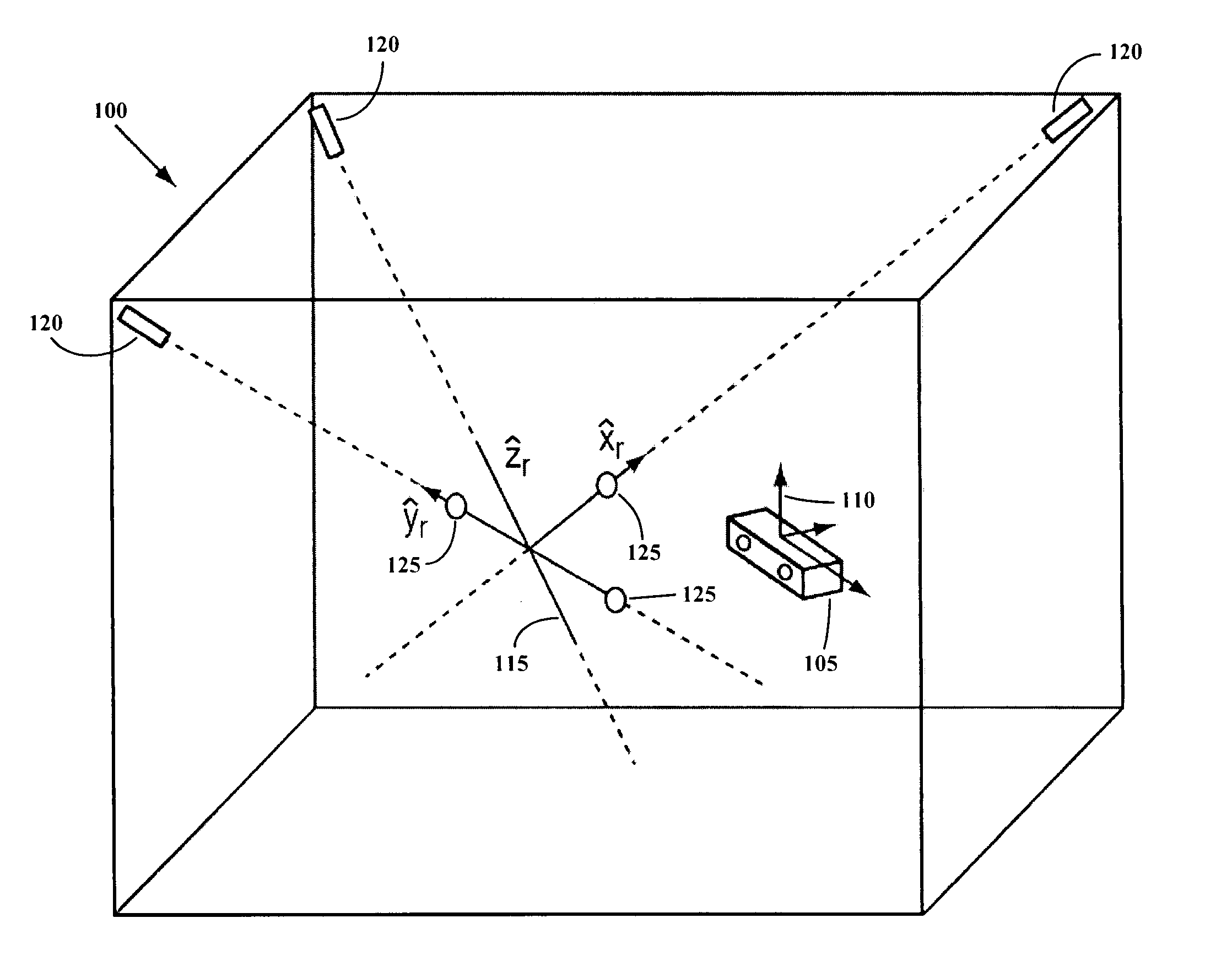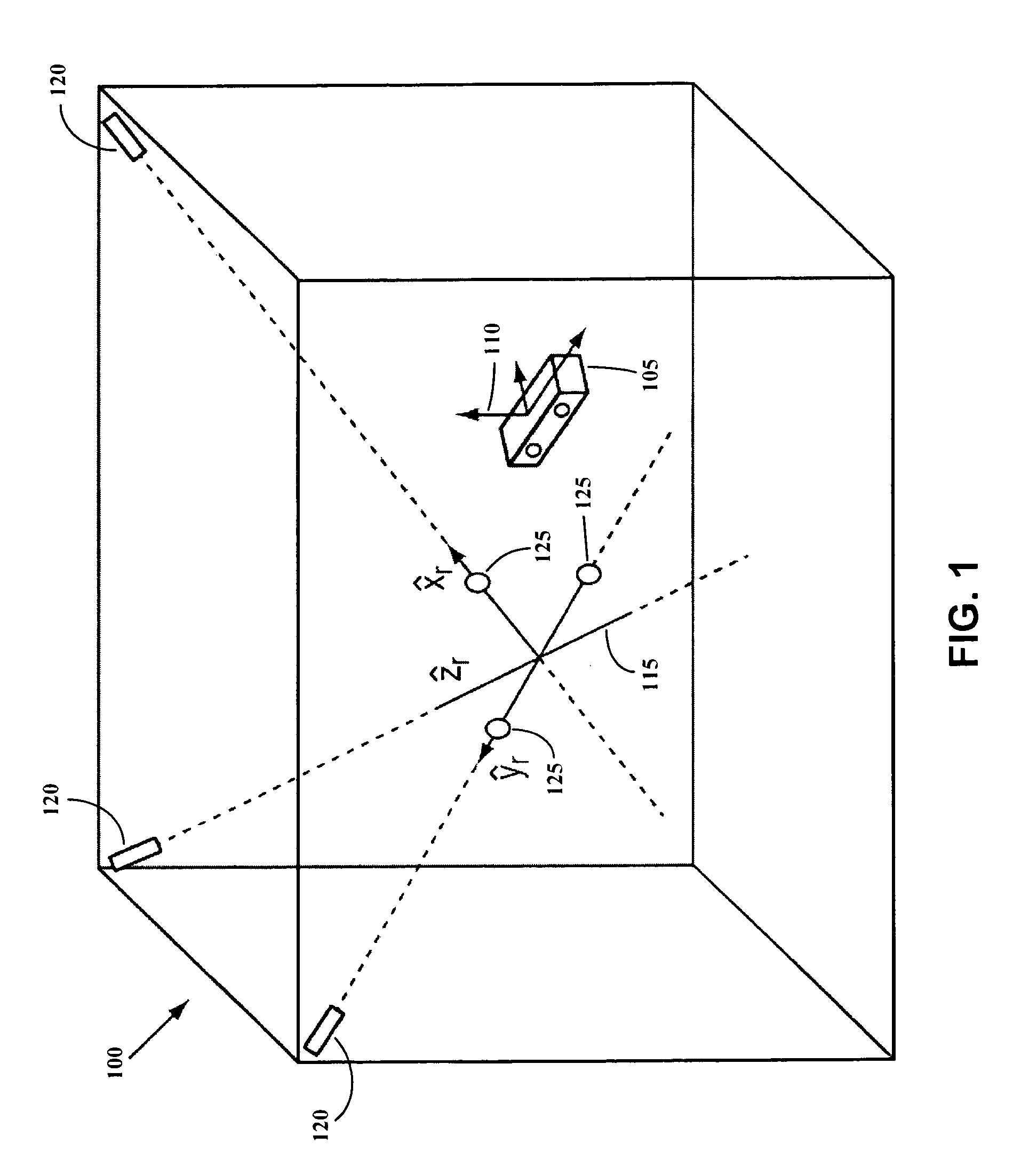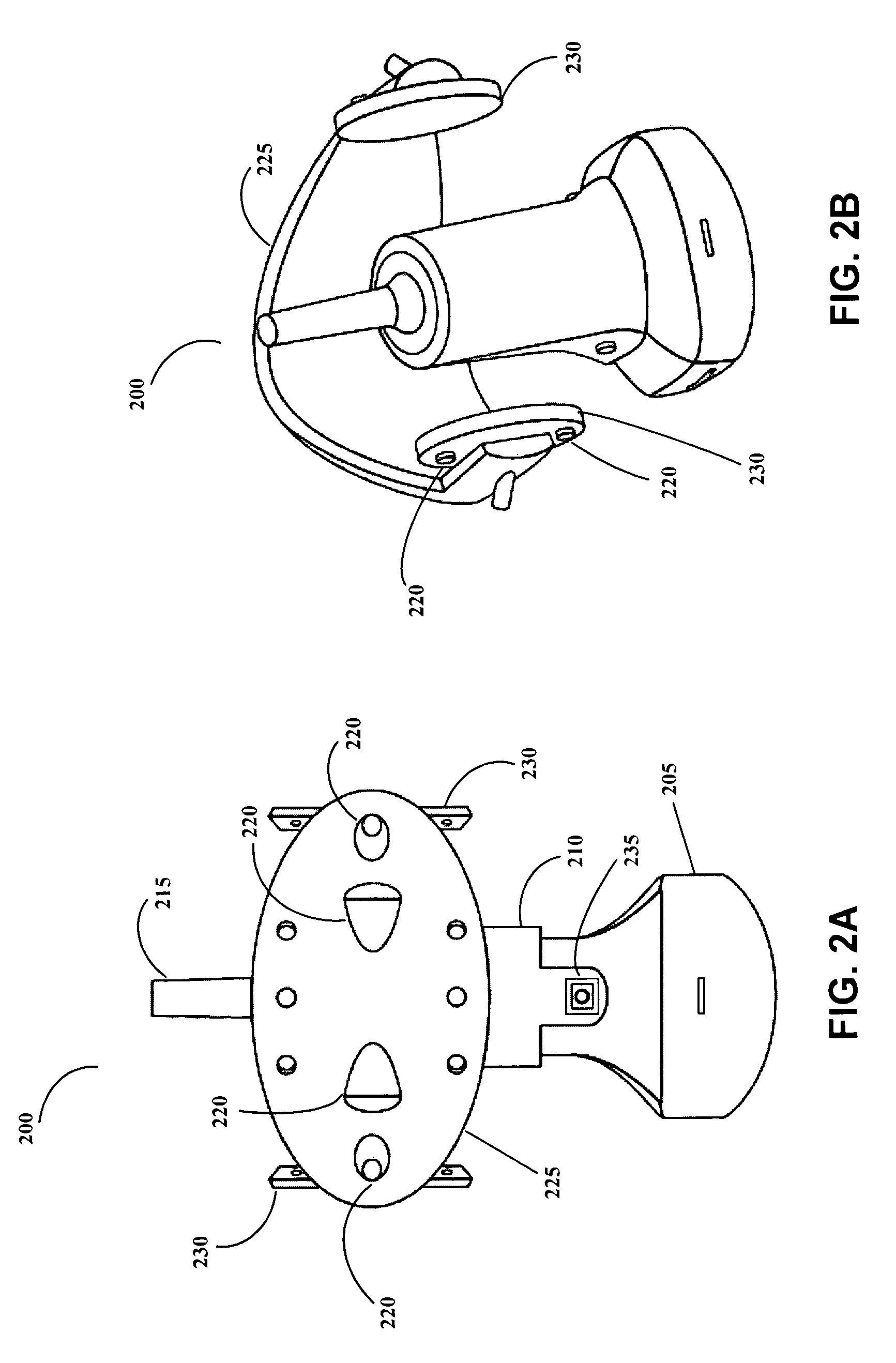Calibrating imaging devices
a technology for imaging devices and calibration tools, applied in the field of medical imaging, can solve the problems of increasing the complexity and time required for calibration, introducing potential errors, and unable to acquire sufficient independent images to use for calibration, etc., to achieve a more rapid and simplified calibration process for imaging devices, improve calibration tools, and facilitate the effect of a simplified calibration process
- Summary
- Abstract
- Description
- Claims
- Application Information
AI Technical Summary
Benefits of technology
Problems solved by technology
Method used
Image
Examples
Embodiment Construction
[0034]Throughout the following descriptions and example, the illustrative descriptions of the invention is described in the context of calibrating a hand-held ultrasound imaging probe to a three-dimensional reference coordinate system defined in a radiation treatment room. However, it is to be understood that the present invention may be applied to calibrating the location of virtually any hand-held imaging device to any reference coordinate system.
[0035]Radiation-emitting devices are used for the treatment of cancerous tumors within patients. The primary goal of radiation therapy is the complete eradication of the cancerous cells, while the secondary goal is to avoid, to the maximum possible extent, damaging healthy tissue and organs in the vicinity of the tumor. Typically, a radiation therapy device includes a particle linear accelerator (“LINAC”) that generates a high-energy radiation beam of therapy, such as an electron beam or photon (x-ray) beam. The patient is placed on a tre...
PUM
 Login to View More
Login to View More Abstract
Description
Claims
Application Information
 Login to View More
Login to View More - R&D
- Intellectual Property
- Life Sciences
- Materials
- Tech Scout
- Unparalleled Data Quality
- Higher Quality Content
- 60% Fewer Hallucinations
Browse by: Latest US Patents, China's latest patents, Technical Efficacy Thesaurus, Application Domain, Technology Topic, Popular Technical Reports.
© 2025 PatSnap. All rights reserved.Legal|Privacy policy|Modern Slavery Act Transparency Statement|Sitemap|About US| Contact US: help@patsnap.com



